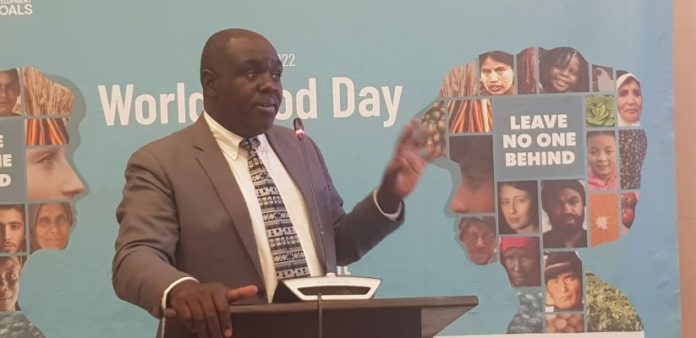Zambia needs to harmonise systems in key economic and productive sectors to harmonise nutrition and attain ‘zero hunger’ as projected by 2030, a food and nutrition expert says.
Zambia lacks the interconnectivity in food production systems in agriculture, community development, among other key sectors to be aggregated and meet the needed nutrition to meet the people’s needs and redress hunger and poverty in the country.
Musonda Mofu, the head of Zambia National Food and Nutrition Commission (NFNC) fears that in the absence of the coordinated food systems in the affected sectors remain a challenge for Zambia to meet the projected zero hunger vision and urgent decisions should be made to reduce malnutrition and the lack of adequate food to meet people’s aspirations.
While Zambia looks to cooperating partners to join hands and fight hunger, there is need for internal adjustments and collectively ensure the lacking interconnectivity in teh productive sectors was affected the country’s aspirations to improve food production and availability.
“Yes we are on the right track to fight or attain zero hunger but we need to aggregate food systems in key productive but teh process is too slow to redress the hunger we seek to end by 2030” Mr. Mofu said on the sidelines of the food conference in Lusaka.
Dubbed: “Leaving no one behind, better production, better nutrition, a better environment, and a better life”, a preparatory liaison ahead of the World Food Day on 16 October Mr. Musonda called for food system transformation.
“We are all in there as partners, we should work as a team to achieve one common goal-fighting hunger, but we are moving in different directions at the expense of the people that need our expertise,”
According to a survey by NFNC, Zambia is experiencing the double burden of malnutrition with 5 percent of children under five years suffering from overweight and obesity.
Arguably, it is estimated that 48 percent of the population unable to meet their minimum calories requirements and more than one-third of children less than five years being stunted. Limited knowledge of nutrition, poor feeding practices and limited and unhealthy diets are the main impairing contributing factors.
Globally in 2020, 149 million children under 5 were estimated to be stunted (too short for age), 45 million were estimated to be wasted (too thin for height), and 38.9 million were overweight or obese. Around 45% of deaths among children under 5 years of age are linked to undernutrition.
Zambia has earlier appealed to cooperating partners to join hands in redressing hunger in the country among its 18+ population through joint various interventions amid headwinds fueling to global food security systems.
Vice President Mutale Nalumango, addressing delegates to the conference called for collaboration with other interest groups in finding durable and lasting solutions in addressing global food and nutrition insecurity challenges, Zambia included.
The remedies or interventions devised to counter climate change, ever rising food prices, COVID 19, among others, should strive to ensure all Zambians, children and women included have regular access to healthy and notorious foods without excluding anyone.
Zambia has taken significant strides to counter these unprecedented setbacks and unveiled the Food and Nutrition Act, 2020, aimed at driving the food and nutrition agenda with support from a committee of senior Government officials.
The idea calls for the inclusion of various partners in ensuring nutrition security and the sustainable growth of the country’s agrifood systems and counter threats of hunger.
Other policies include implementing the first 1,000 most critical days Phase ii programme under the framework of scaling up nutrition agenda, a huge multi-sectoral programme being implemented in the country supported by various cooperating partners.
Food and Agriculture Organisation country representative Ms. Suse Filiipini commended the Government’s commitment to transforming the food systems and make it more efficient, resilient and sustainable as a lasting solution to achieving the food systems transformation agenda.
And World food programme country representative Ms. Cissy Byenkya regretted the multiple effects the headwinds are causing on the majority Zambians after undermining food production as evidenced by the stagnant high rates of malnutrition, affecting especially women and children and the impact might sustain and more severe than other neighbors and requires attention.
“The effects of climate change remain among major risks to national food and nutrition security in Zambia. Even more worrying is the severity and frequency of the occurrences of prolonged dry spells and floods.
There is a need for awareness and affirmative action in improving the nutritional status of Zambians by promoting the consumption of adequate amounts of diverse, safe, and nutritious foods every day. There is dire need to safeguard ‘mother earth’ through the protection of the environment.








